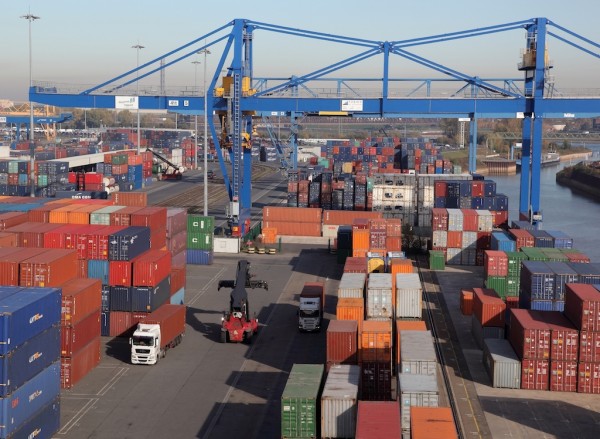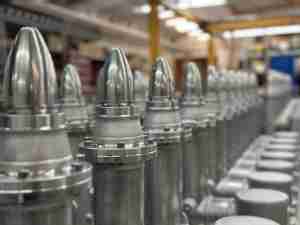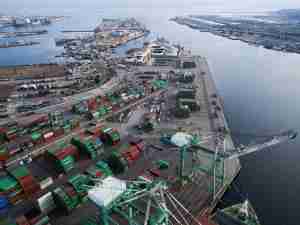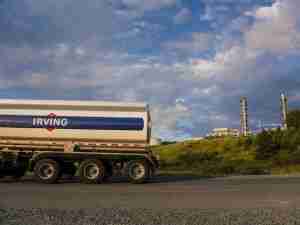The first step consists of the planned installation of a mobile fueling station, which can be relocated quickly and easily if required. During the initial phase this facility will be used to supply LNG to port vehicles like reach stackers and terminal tractors as well as the trucks of local freight forwarders. © duisport
Duisburg - RWE Supply & Trading and duisport are building infrastructure for LNG (Liquefied Natural Gas) at the Port of Duisburg. The two companies have recently come to an agreement in this regard. The objective is to develop an integrated and sustainable logistics concept for the procurement, storage, distribution and use of LNG, and to implement the concept at the Port of Duisburg. A land parcel for the LNG fuel station has already been designated. Previously, the partners jointly examined the possible uses of LNG as a substitute for diesel fuel. “We are pleased at having procured the services of duisport as a partner for this innovative project. The Port of Duisburg offers the ideal conditions for LNG,” emphasizes Andree Stracke, member of the management team at RWE Supply & Trading GmbH. “As the world's largest inland port, Duisburg offers the perfect connection to all transportation channels.” It is not only the ships, trains, port vehicles and trucks, but also the Rhine-Ruhr region, with its industry and high population density, that offers the ideal conditions and considerable customer potential.
“With its extensive experience in LNG procurement and the construction, operation and maintenance of gas supply facilities, RWE is the ideal partner for this collaboration,” says Erich Staake, CEO of duisport. “This project is another key part in our efforts to permanently optimize the Port of Duisburg site.
The first step consists of the planned installation of a mobile fueling station, which can be relocated quickly and easily if required. This facility will be used to supply LNG to port vehicles ( reach stackers and terminal tractors) as well as the trucks of local freight forwarders during the initial phase. The vehicles are retrofitted for LNG and extensively tested in regular operations. Investments for this first step total approximately EUR 500,000.
LNG is natural gas that cooled to -161° degrees to create liquefied gas. This has the effect of reducing the volume to approximately 1/600 of the volume of natural gas under normal pressure, which makes it possible to transport large volumes of natural gas. LNG is much more environmentally-friendly since emissions of carbon dioxide, nitrogen oxide, sulfur dioxide and particulates are much lower than for other fuels.






